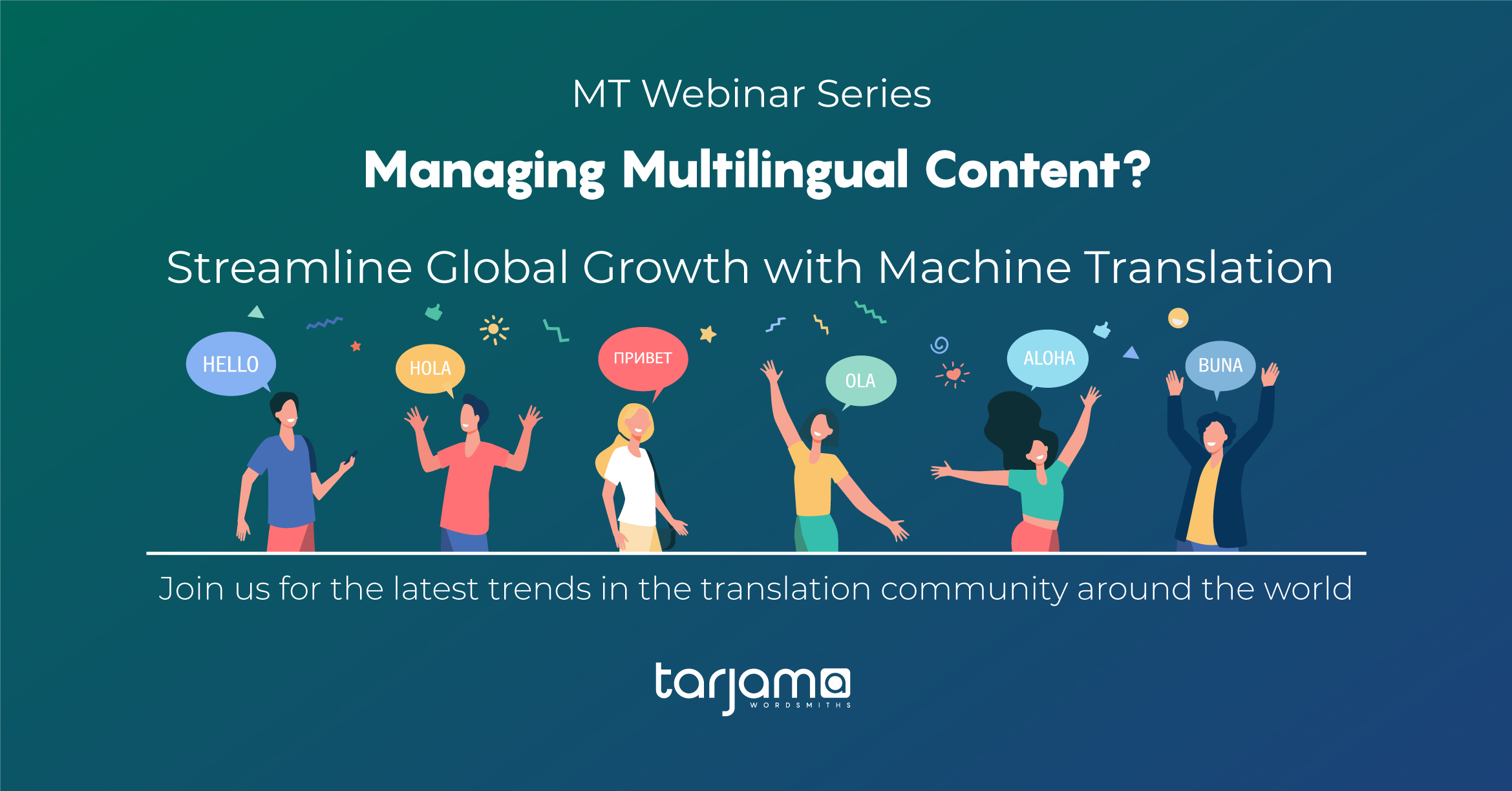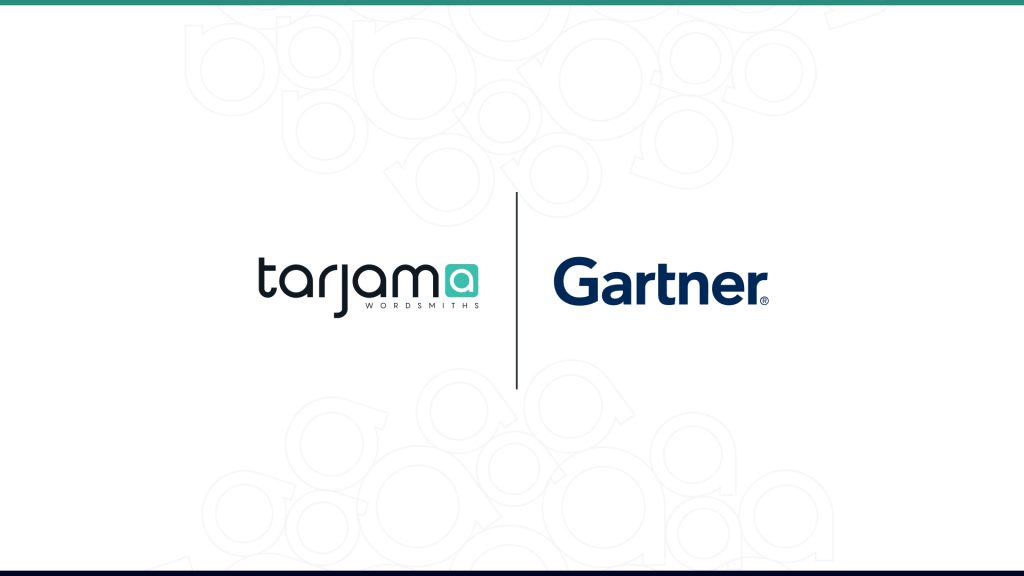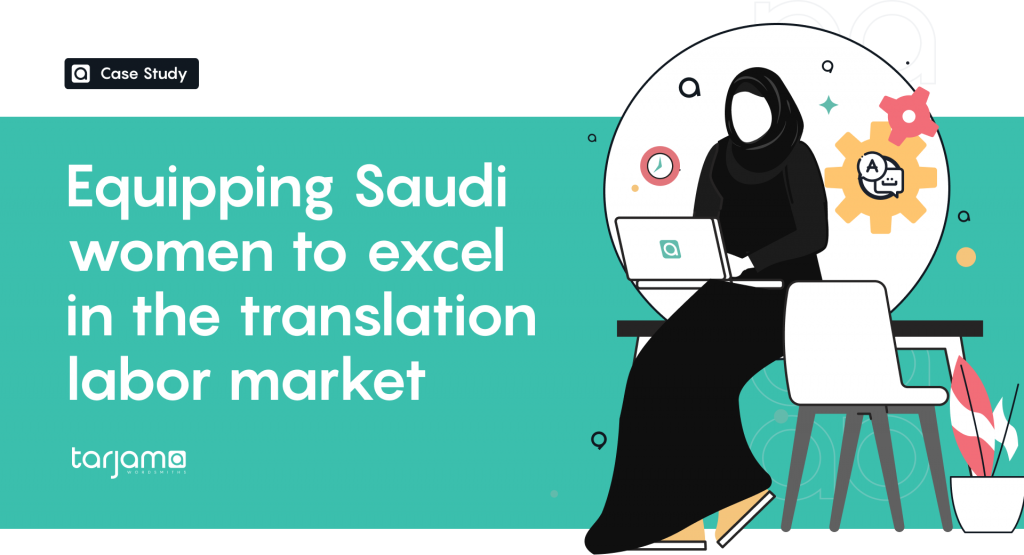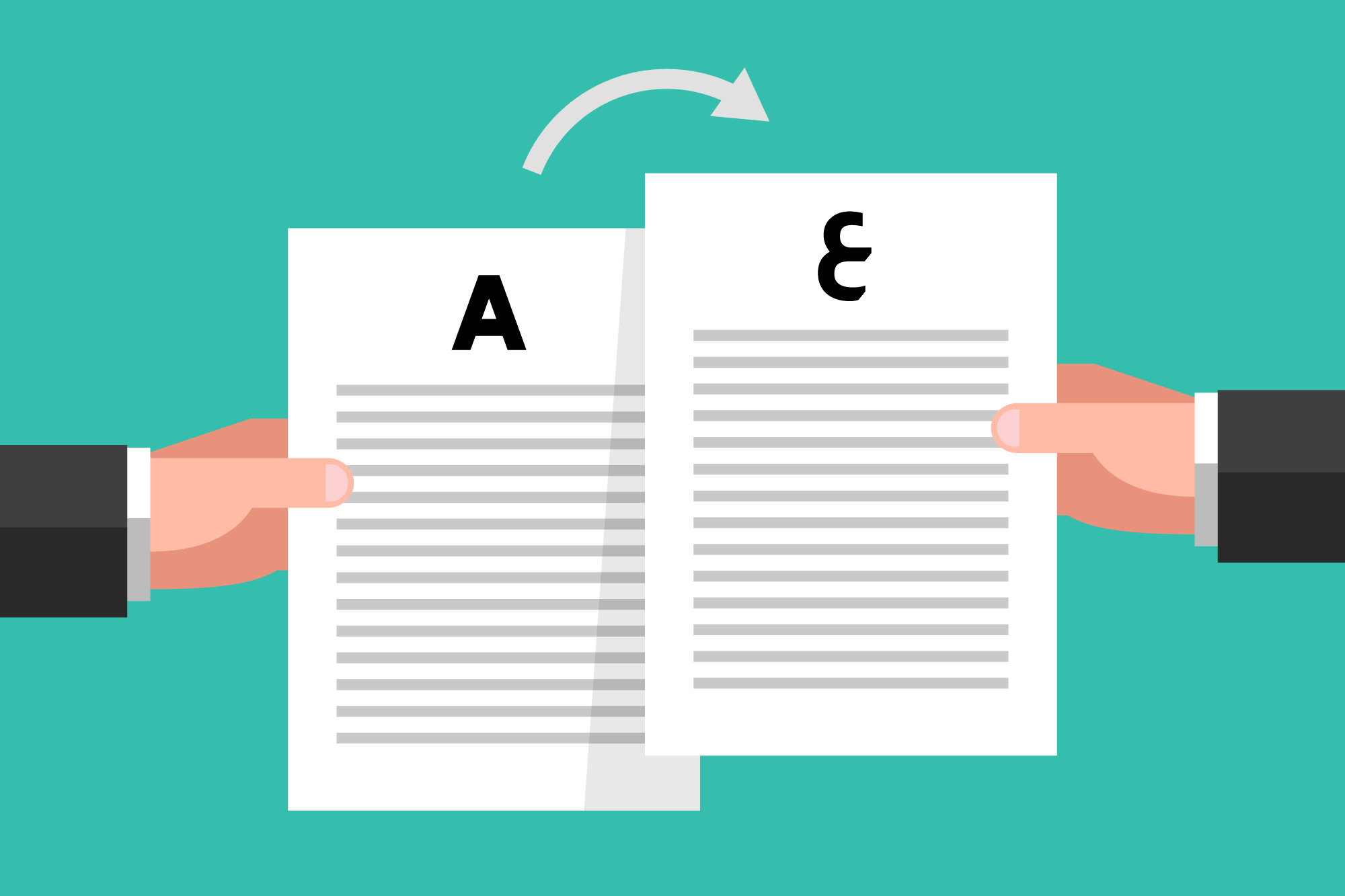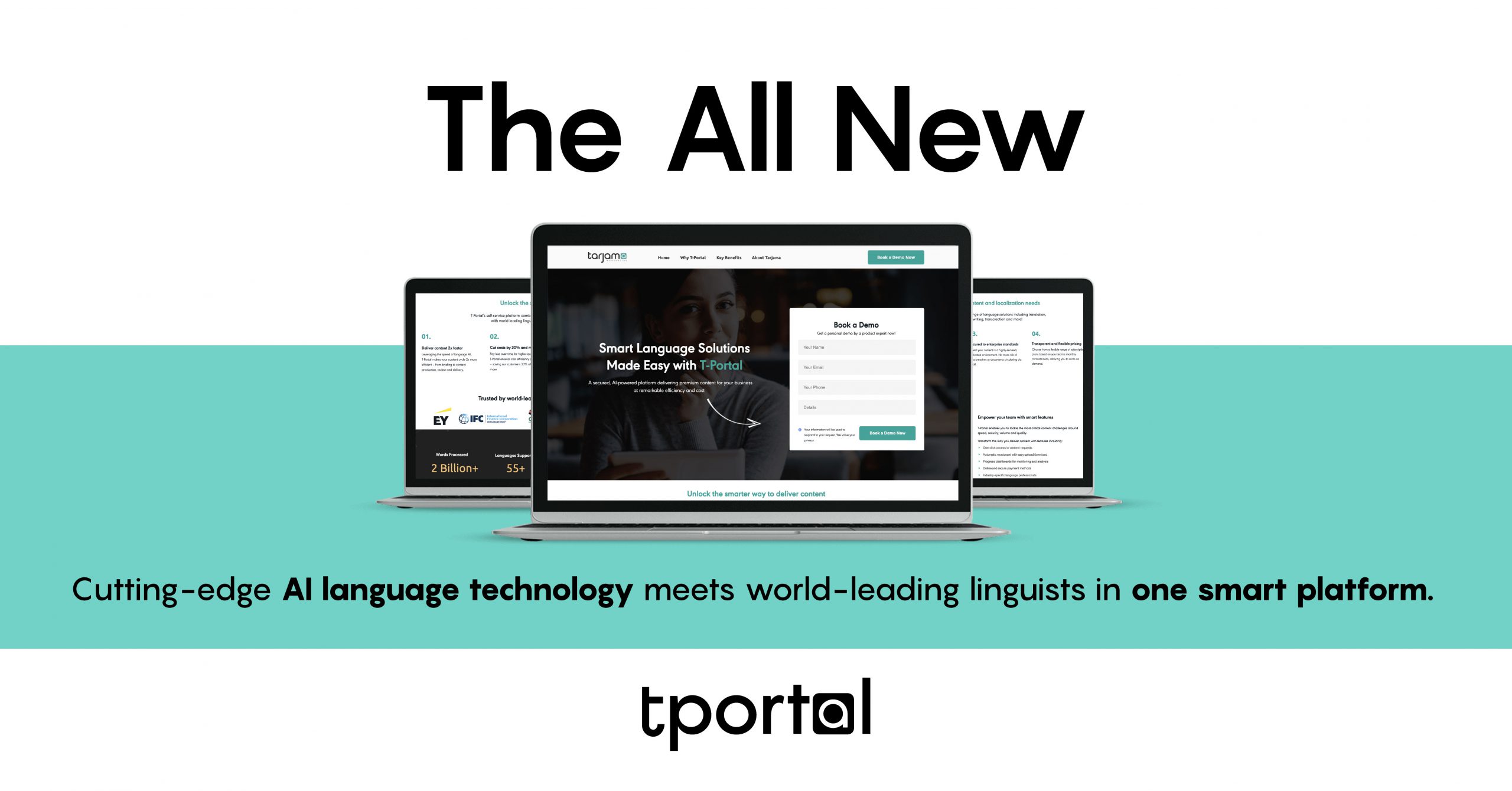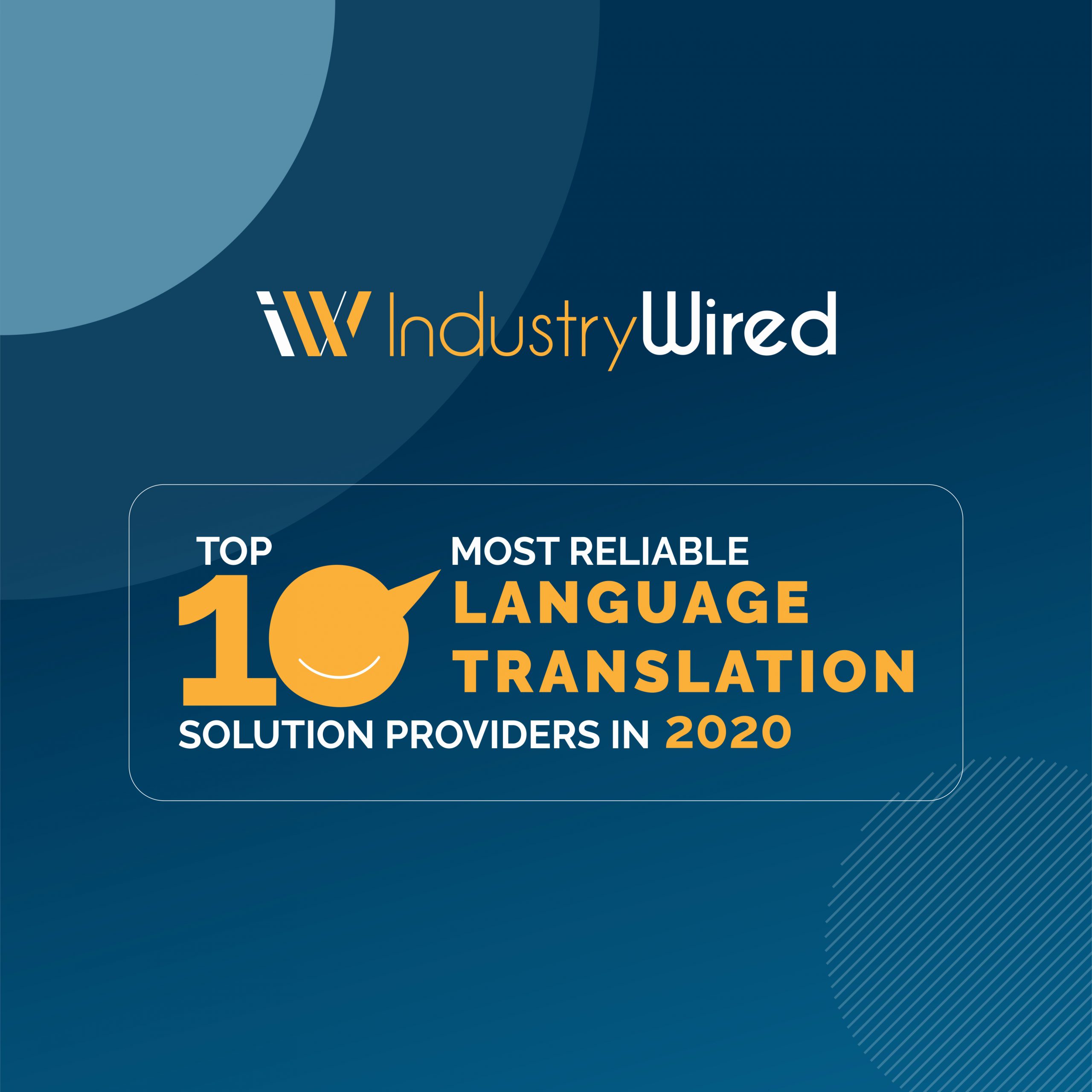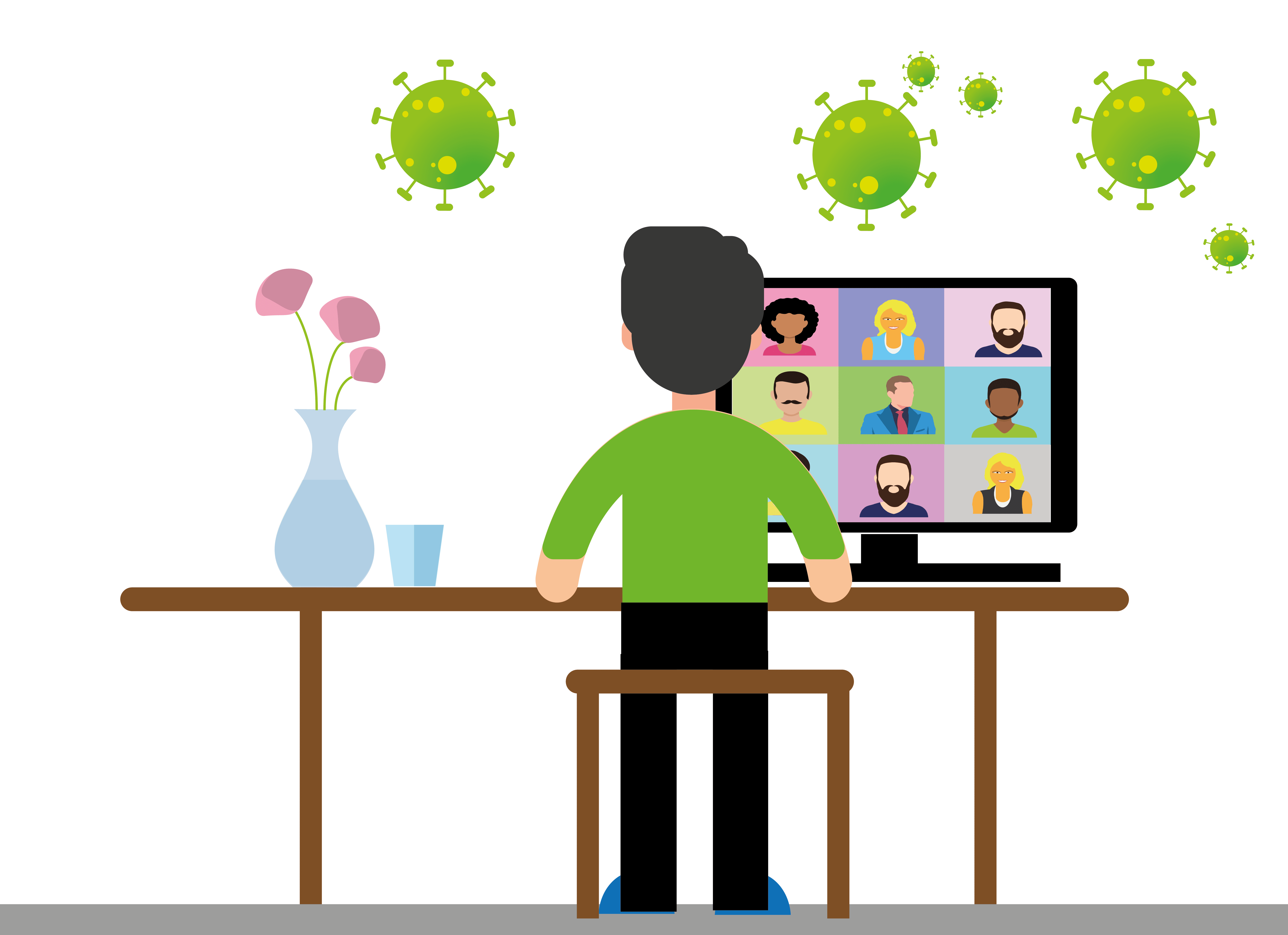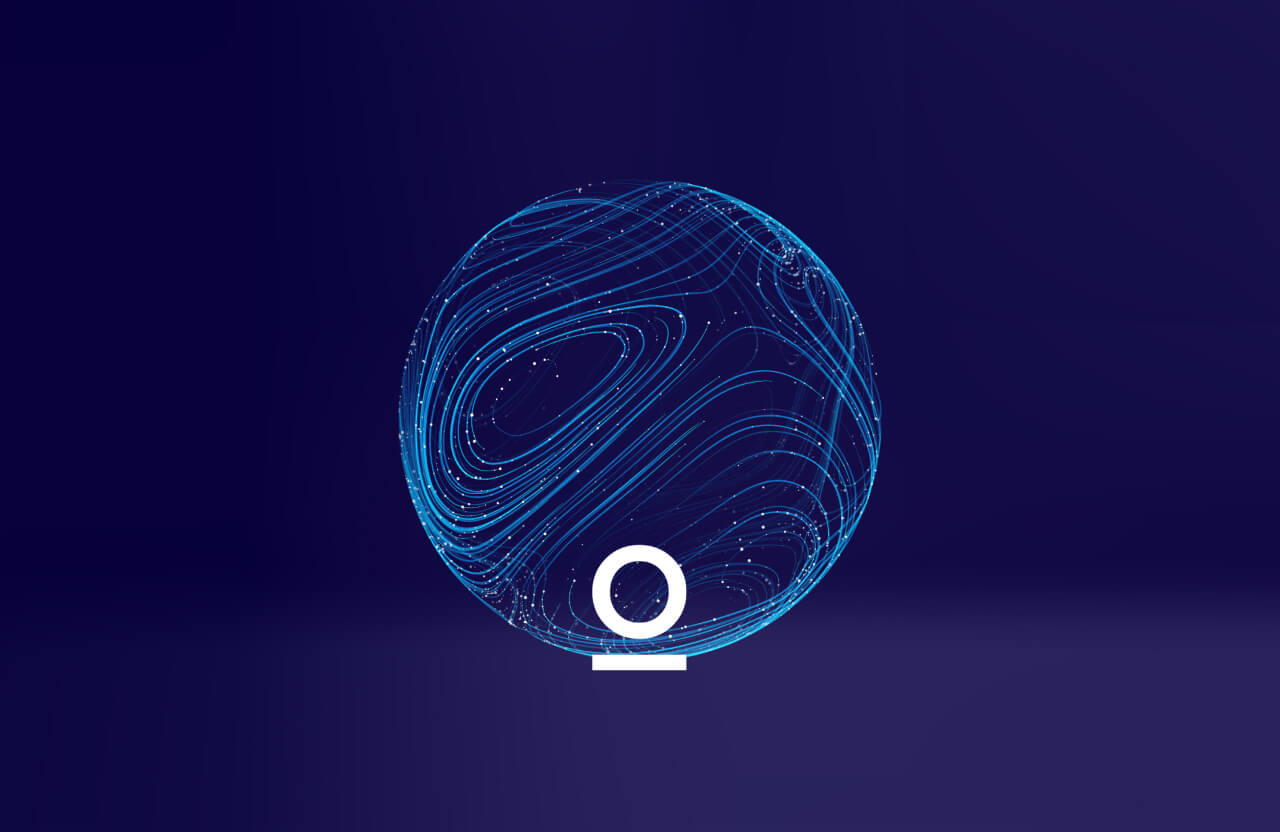To launch our Machine Translation Webinar Series, we hosted a kick-off event to discuss how businesses can streamline their global growth with Machine Translation. Attendees tuned in from across the globe!
What is the Machine Translation Webinar Series?
Machine translation is quickly becoming the most dominant and preferred translation model. In a business world where time and cost savings are more critical than ever, machine translation plays an important role for business professionals looking to optimize their multilingual content cycle as well as linguists looking for smarter workflows.
However, many companies are still facing challenges and questions around MT. With the MT Webinar Series, Tarjama aims to tackle these challenges by exploring, discussing, and answering the most pressing issues that people face with MT. The series aims to enable companies and individuals alike to make the most out of MT and successfully integrate it into their localization workflows.
For the kick-off event, we hosted experts from the AI and machine learning field to share their insights:

Hassan Sawaf, Founder of aixplain
Hassan has 25+ years of experience in employing cutting-edge technologies for mission-critical business operations.
Ruba Jaikat, Machine Learning Engineer at Tarjama
Ruba is one of Tarjama’s leading machine learning engineers, with hands-on experience delivering innovative machine learning solutions.
Here are our most important takeaways from the kick-off event:
1) MT is essential for fast, cost-efficient, secure high-quality translations
In today’s digital world, businesses looking for globalization are realizing the limitations of human-only translations – and for that reason, we see many businesses integrating machine translation into their localization workflows. 10 years ago, people thought that MT will replace human translators but in today’s reality, MT is enabling humans versus competing with them. When Hassan started the AI team at eBay, a challenge was to make the content for billions of items across inventories available to everyone in multiple language pairs – and as close to real-time as possible. At that point, human translators alone could not suffice, which is where MT came in as a powerful solution.
MT automates a huge part of the translation process, where the machine does the heavy-lifting and leaves space for the human translator to focus on the creative elements, or in other words, Machine Translation Post-Editing (MTPE). We’re seeing MTPE being heavily adopted by businesses because it improves the productivity of translations and helps maintain the momentum of translation needs at a reduced cost, while also preserving the quality of the translation.
2) The 4 main types of MT service levels & their use-cases
We’re seeing most Language Service Providers (LSPs) offering their clients and customers four main types of translation services. Each service type varies in human involvement, delivery time, cost, quality, and style.

– Raw MT – Translations are generated by MT alone. Raw MT is associated with the fastest delivery, lowest cost, and fair quality, and is often used for non-client-facing material that isn’t high profile.
– Light MTPE – Linguists make minor modifications to Raw MT. Translations will have no grammatical mistakes or mistranslations, but they just might not comply with the translation style and guidelines of the client.
– Full MTPE – Linguists modify Raw MT based on client guidelines and specifications. Full MTPE allows a linguist to bring Raw MT output to a human-like publishable quality translation. Because of the higher expenses in terms of cost and time that comes with it, MTPE is often only used with content that has a large target audience, generates revenue, or needs to meet legal requirements.
– Exclusive/Custom MT – A custom MT model is built based on the client’s data. This is a great option when a business requires a higher quality of that provided by Raw MT but still wants instant translations or does not want to expose the data to humans for privacy reasons. Since it’s trained on the client’s data, Exclusive MT takes into consideration industry- and client-specific lingo and jargon, thus producing higher-quality translations.
3) The Arabic world’s challenge is domain-specific data
Arabic is a difficult language with many different forms and dialects. While generic Arabic MT engines have come a long way because of the huge amount of data used to develop these engines; terminology may not suit every subject area, resulting in mistranslations in particular business domains. Ruba explains that Tarjama’s MT was built to solve this challenge for businesses looking to localize their content for the Arab world. Its engine is trained on high-quality professionally-edited data accumulated over 12 years across various industries, resulting in accurate Arabic translations across a variety of custom-domains.

5) The future (and present!) of MT is big
As personalized content is becoming increasingly important, we see the future of MT will have to involve dialect-aware MT engines that understand different dialects and forms of language. Another area that MT will need to conquer is low-resource languages. With over 6,000 languages in the world, MT is performing on an average level for the top 50-100 languages, with room for improvement for many of those. For the remaining thousands, MT will need to catch up in the near future.
MT will also need to be able to integrate with other AI solutions. As businesses are looking to work smarter and faster in a more streamlined, holistic fashion, MT will need to adapt to that by integrating with other technologies across the entire business workflow.
What’s Next?
In our upcoming webinars, we’ll continue discussing the most pressing aspects of Machine Translation to enable companies and individuals alike to utilize this powerful technology. Our audience in the previous Machine Translation Webinar expressed their interest in various topics including data security concerns around MT, quality control of MT output, and custom-domain MT engines, which are all topics we plan on covering in our upcoming episodes. Stay tuned!
